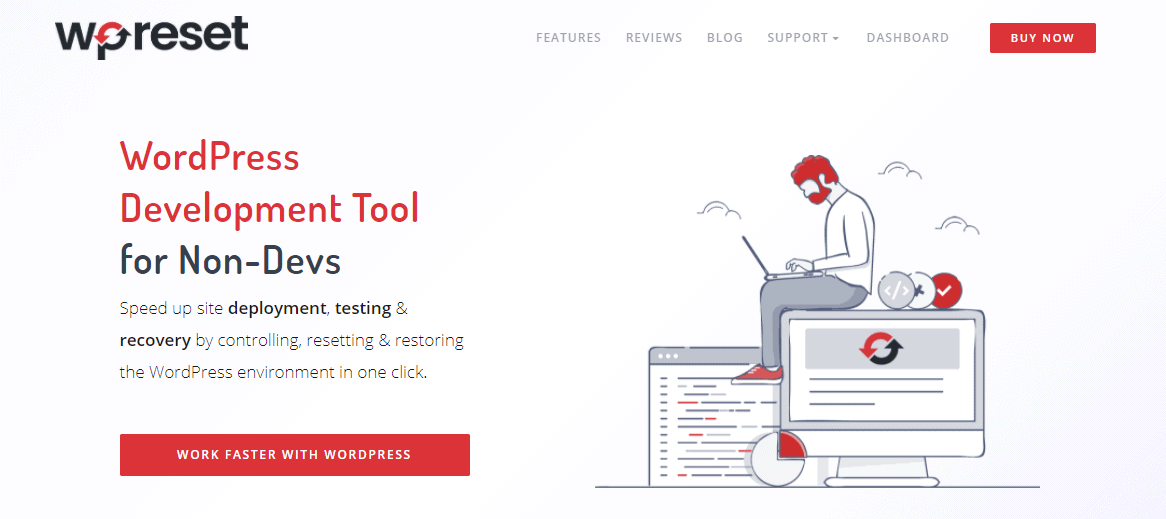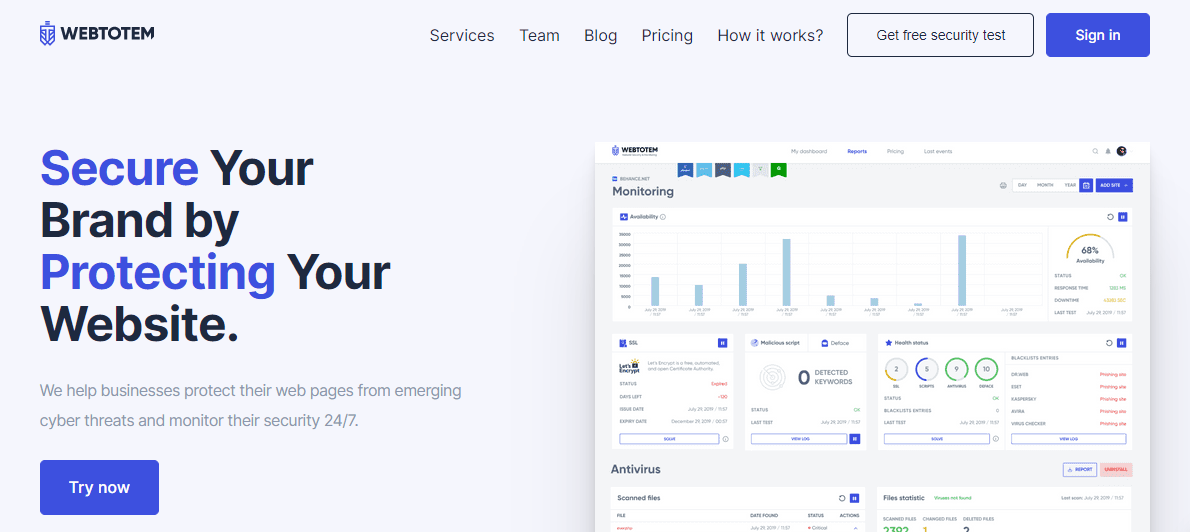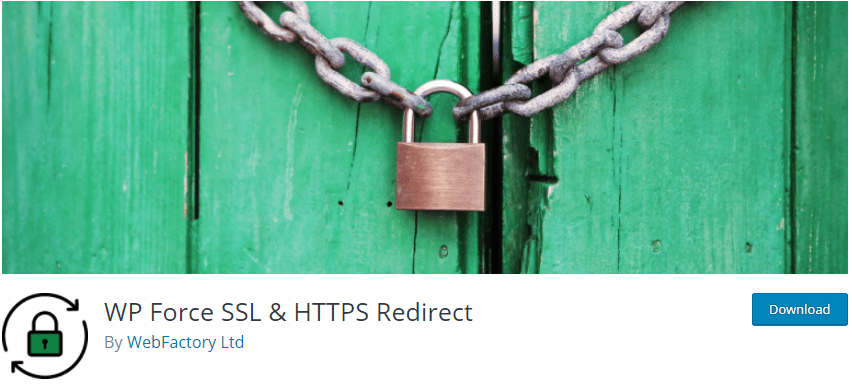Once you create your WordPress blog, I believe you’ll want to protect it, yourself, and your private information online.
Don’t worry. Doing this isn’t as hard as it sounds since there are various ways in which you can protect yourself online, other than using a stronger password. That is where this article comes in, as it will tell you 12 smart ways of making your WordPress blog more secure.
1. WP Reset
With WP Reset, you will be able to speed up your work and create a safer blog. Using this plugin, you can reset your whole blog (or just some parts) and start over with just one click. This is quite handy when you mess something up and you want a fresh start.
Besides that, you can also create plugin collections that can be installed after a reset.
But, since we are talking about security, the most important feature of this plugin would be the Emergency Recovery Script. With this feature, you can quickly restore any user roles or admin privilege and disable plugins that might be causing your site to crash. This is amazing since it works even if you can’t access your WP dashboard.
If this piqued your interest, you could read more about the feature by clicking on this link.
2. WebTotem
If you want to secure your blog and data, then WebTotem is for you. The plugin will automatically scan your blog and protect you from all viruses and malicious files. Plus, it will show you a detailed analysis of every file on your blog.
It will inform you of any changes that you have not made. And in the case of an information leak, WebTotem will notify you so that you can start working to minimize damage.
Think of this plugin as a program that scans, detects, and removes malware, but instead of your computer, it protects your website.
The best thing is, once you buy it, it stays with you forever. With License Tier 1 for $59, you will get all of the aforementioned features and the ability to use this plugin on 10 of your websites and 3 client sub-accounts.
3. Use SSL certificates
An SSL certificate plays an important role in building trust between a browser, users, and a web server. It is a type of online ID that ensures users’ safety by turning data files into a cryptographic key that hides information better.
For this purpose, we recommend you try the plugin called WP Force SSL & HTTPS Redirect.
The best thing about this plugin, other than its security feature, is that you won’t need to change a single line of code when you use it because this plugin does all the work for you. Just add it, use the SSL certificate testing tool, and the tool will help you see if everything is installed well and valid for use.
4. Use a quality hosting service

When you create your blog, you will need a server where you will host it. And since buying a server is not really accessible to regular users, you need to find an alternative solution. This is where web hosting services come in, as they will provide you with space on a server and bandwidth.
They are in charge of storing your blog on their server, and they also make sure that no one else has access to it except you.
You wouldn’t give your money to a shady bank, so why would you give your blog to some shady hosting service? Therefore, before picking a hosting service, it is best to check security protocols and then decide which service seems most reliable to you. Some quality hosting services that we can wholeheartedly recommend are Namecheap, DreamHost, and Hostinger. Make sure to check them out and pick the service that sounds best to you.
5. Two-factor authentication
You can always use two-factor authentication as an extra layer of protection. Instead of requiring users to just enter their password, you have the ability to deter scammers by, for instance, sending a combination of numbers to a user’s email or mobile phone, which they have to enter as well.
With this type of security measure, both you and your users will know if someone is trying to access an account secretly so that you can act on that information. A simple measure like this will improve the security of your blog instantly.
6. Regular updates
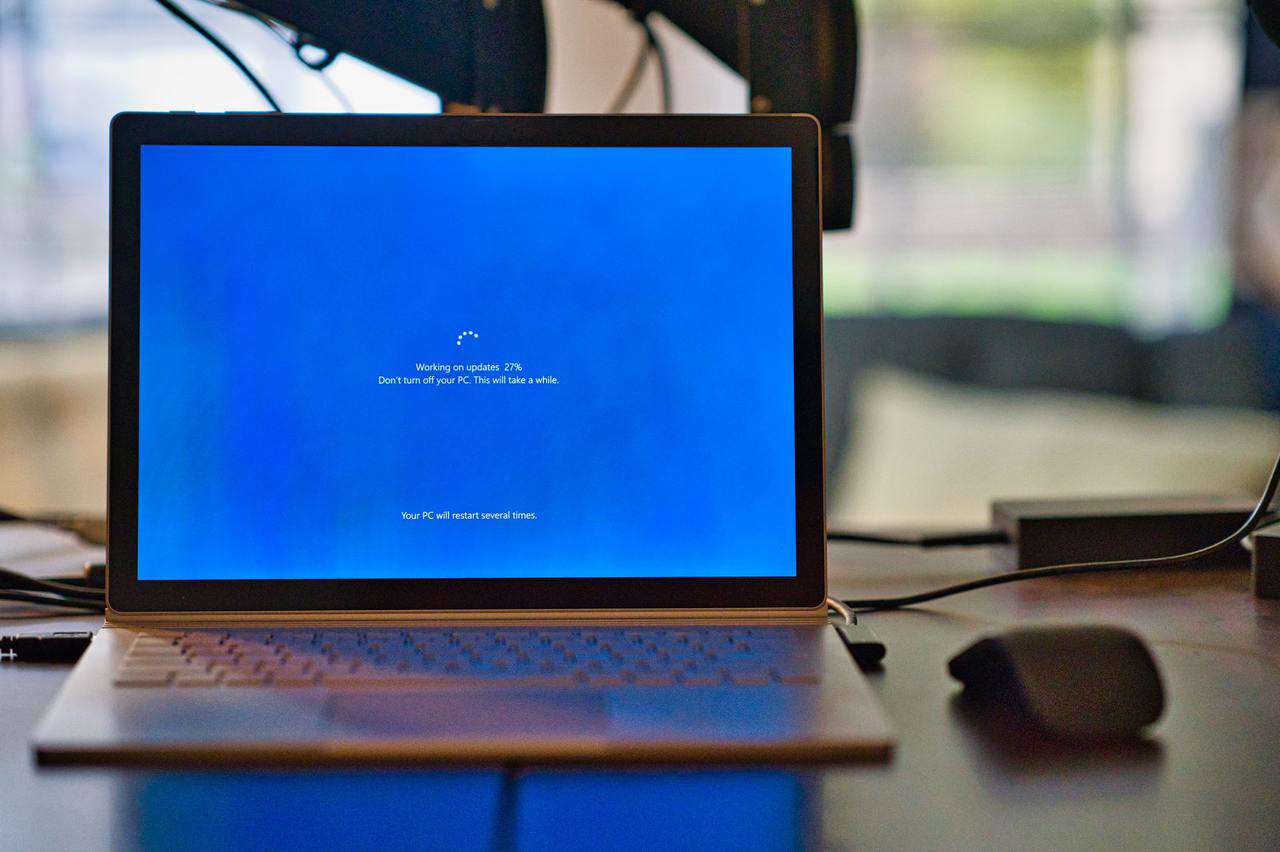
You might be surprised to learn that regularly updating your software keeps your blog secure. In any software, be it WordPress plugins or themes, bugs and exploits are bound to occur. By regularly updating, you will reduce the amount of time your website is vulnerable.
But, keeping software up to date can be tedious, so it might be a good idea to invest in some maintenance services. That way, you will have more time to focus on other important things.
In case this topic piqued your interest, you can read more about it at this link. There, you will find a handy comparison of the most popular maintenance services available. But, if you are more of a do-it-yourself kind of person, at this link, you can find the ultimate guide to WordPress maintenance.
7. Keep personal information professional and limited
You always have to be careful about how much personal information you are revealing on the internet. Information such as your name, address, cell phone number, or email address can be really sensitive. Having said that, by revealing it, you run the risk of someone stealing your identity, financial information or even jeopardizing your business.
So be frugal when it comes to giving out personal information. Better to be safe than sorry.
8. Don’t use public Wi-Fi networks
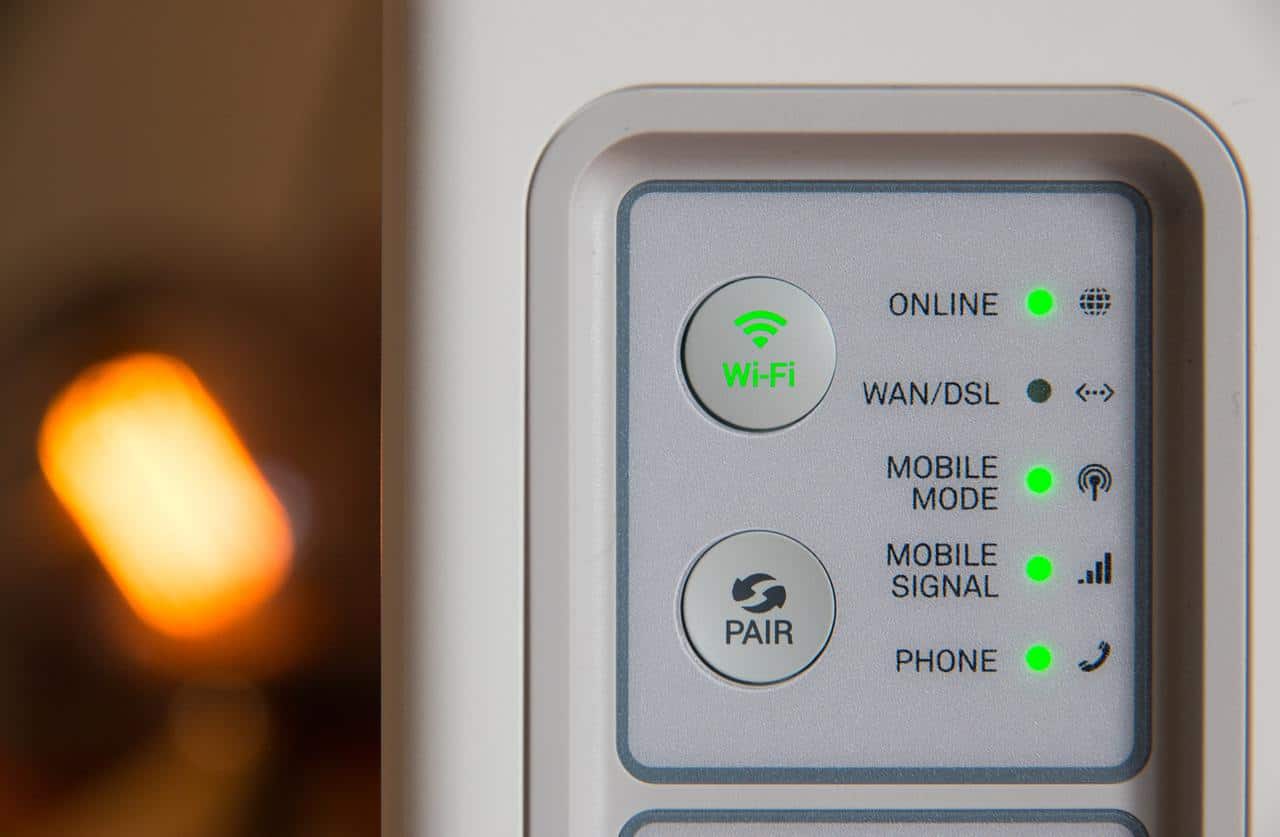
As tempting as free internet may sound, it is also dangerous because anyone, even hackers, can connect to it. If you just want to check your mail by connecting to a public network and think that nothing bad can happen, you would be mistaken.
Since everyone is using the same connection, the data being sent through is visible to everyone. This can be enough for people to steal sensitive information from you. However, if you have no other choice apart from using public Wi-Fi, then use a VPN as well, or just don’t access your online banking account or any other site that will require you to put in personal information.
9. Be careful about what you download
You never know what someone might be sending you, especially if that someone is anonymous. People have become clever when it comes to disguising malware as regular things. So, try to stick to official or verified sites as much as you can. You should also pay attention to all of the files that you are downloading by scanning them.
10. Always backup your data
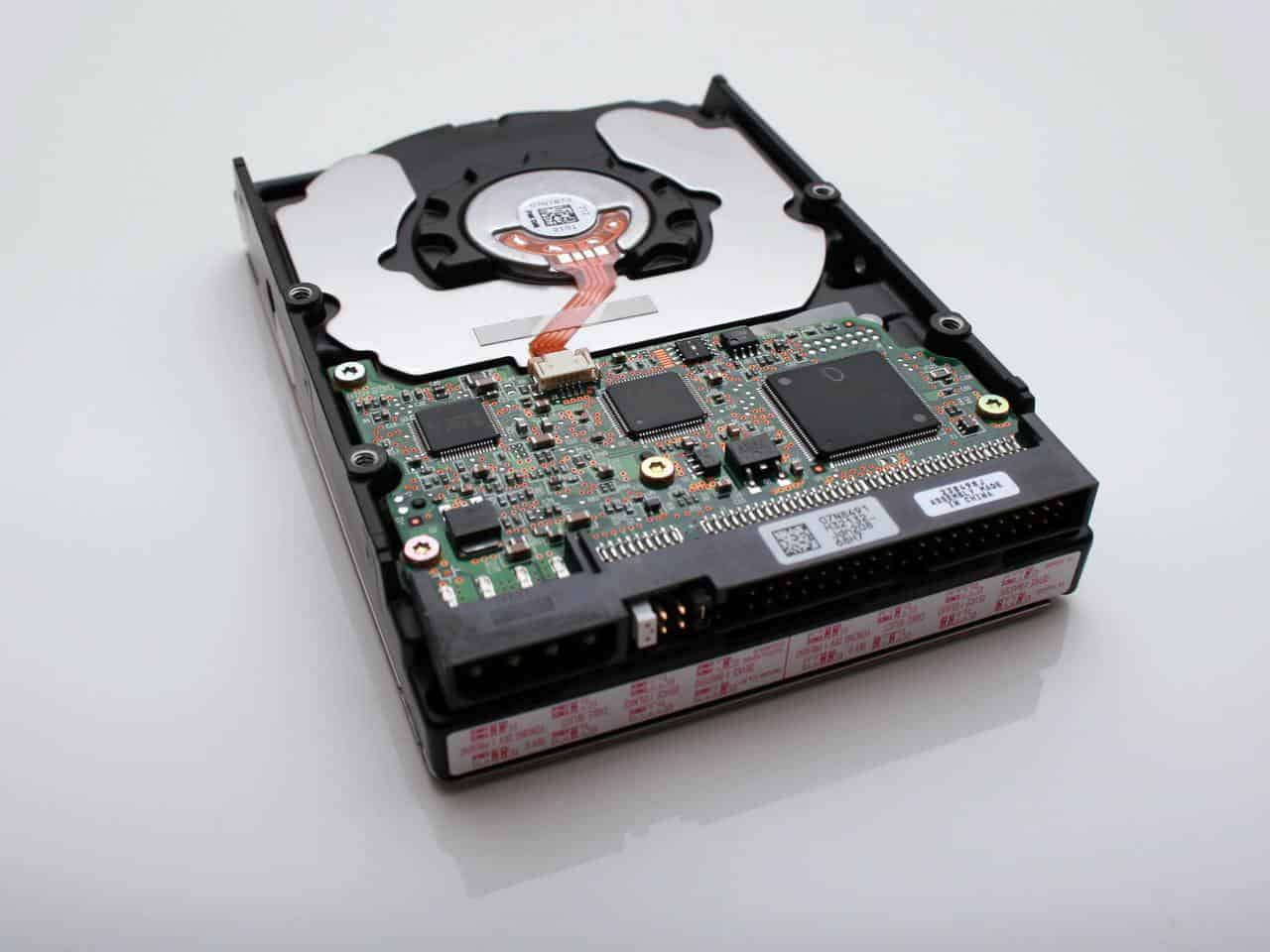
As time-consuming as it may be to backup any blog, device, or data, it really pays off. By storing a backup of your blog in a secure location, you can always fully restore it if something bad happens. Thankfully many web hosting services also offer daily site backups, so it has never been easier to do this.
You never know when something might go wrong, so you should take certain steps to prepare for it.
11. Choose a strong password
Your password is the first line of defense, and therefore you have to be careful when choosing it. If you decide to use a simple password so that you can remember it more easily, you might be leaving a gaping hole in that line of defense.
Try not to repeat your passwords on various sites and try to make them as long and complex as possible. That way, hackers will have to put in more effort to log into your account, so the chances of them giving up and looking for other easier targets are quite high.
12. Be careful about who you meet online

You never know who you are talking to while you are on the internet, and that’s why you need to be careful no matter how friendly and approachable someone may be. Techniques like phishing are widespread, and you would be surprised by how many people fall for them. And yes, there are many good people and opportunities out there that can help you expand your horizons, but make sure that they are not in some form of a malicious scheme before taking things far since there will always be strangers out there who want to take advantage of you.
Summary
After reading this article, we hope you will apply at least one of our tips and bits of advice regarding protecting yourself and your blog on the internet properly and efficiently.
And even though plugins like WP Reset and WebTotem are trying to keep you and all of your site’s data safe and protected, you still need to be careful about what information you reveal.
So, good luck out there, and beware.

